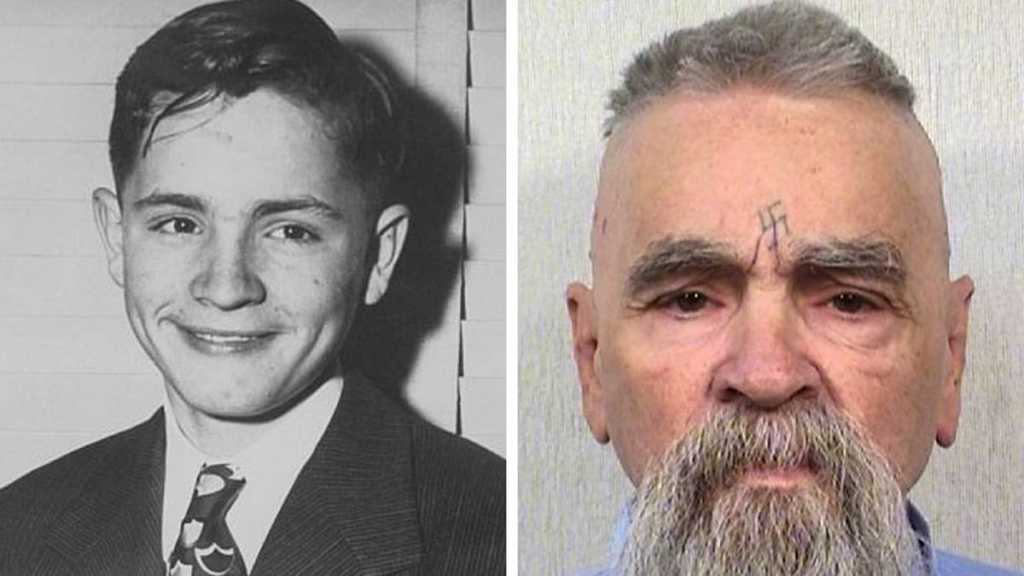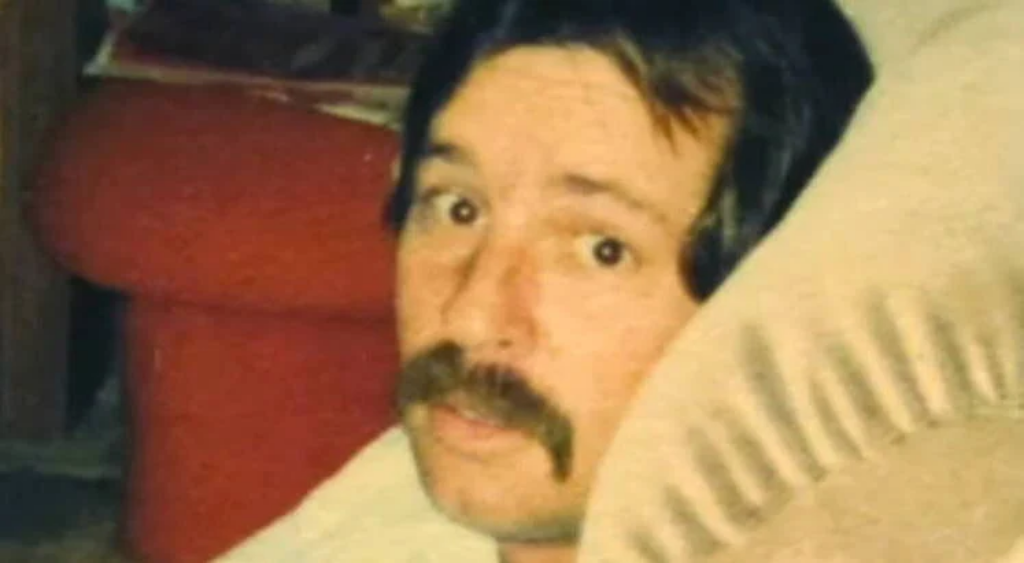Charles Luther Manson remains one of the most notorious figures in American history, a name synonymous with chaos, manipulation, and murder. His influence over the Manson Family and their heinous crimes continues to haunt the collective memory of society. This article delves into the dark world of Charles Manson, exploring his life, the infamous murders, and the psychological tactics that enabled him to control his followers.
Beyond the headlines and the sensationalism, Manson's story is one of tragedy and a cautionary tale about the dangers of cults and the power of persuasion. As we explore the life of this infamous cult leader, we will uncover the factors that led to his rise and the long-lasting impact of his actions on victims' families and American culture.
This article aims to provide a comprehensive look at Charles Manson's life, his criminal activities, and the legacy he left behind. By understanding the details of his story, we can better grasp the dangers of manipulation and the importance of critical thinking in protecting ourselves and others from similar threats.
Read also:Who Is Boris Sanchezs Wife Discover Her Story Life And Influence
Table of Contents
- Biography of Charles Luther Manson
- Early Life and Struggles
- Rise to Power and the Manson Family
- The Infamous Murders
- Psychological Tactics and Manipulation
- Legal Ramifications and Sentencing
- Impact on Society and Cultural Legacy
- Controversies Surrounding Charles Manson
- Death and Aftermath
- Lessons Learned from the Manson Era
Biography of Charles Luther Manson
Charles Luther Manson was born on November 12, 1934, in Cincinnati, Ohio. His life was marked by instability, crime, and a descent into darkness that would eventually lead to one of the most infamous murder cases in American history. Below is a summary of Manson's key biographical details:
Key Details About Charles Manson
| Full Name | Charles Luther Manson |
|---|---|
| Date of Birth | November 12, 1934 |
| Place of Birth | Cincinnati, Ohio |
| Date of Death | November 19, 2017 |
| Known For | Leader of the Manson Family and involvement in the Tate-LaBianca murders |
Manson's biography reveals a complex individual whose troubled upbringing and criminal tendencies shaped his destiny. His life story serves as a stark reminder of how early experiences can influence later actions.
Early Life and Struggles
Manson's early life was fraught with challenges. Raised by a single mother who struggled with alcoholism, Manson spent much of his childhood in foster care and juvenile detention centers. These experiences contributed to his eventual criminal behavior and shaped his worldview.
Key Factors in Manson's Early Life
- Lack of stable parental guidance
- Exposure to crime and delinquency at a young age
- Repeated incarcerations during adolescence
Research shows that individuals who experience unstable childhoods are more likely to engage in criminal activities later in life. Manson's story aligns with this pattern, highlighting the importance of early intervention and support systems for at-risk youth.
Rise to Power and the Manson Family
By the late 1960s, Charles Manson had gathered a group of followers known as the Manson Family. This commune of young people, many of whom were disillusioned with mainstream society, became the vehicle for Manson's destructive ambitions. The group lived on a remote ranch in California, where Manson exerted complete control over their lives.
Characteristics of the Manson Family
- Isolation from mainstream society
- Strong loyalty to Manson's leadership
- Adherence to Manson's apocalyptic vision
The Manson Family's structure and dynamics played a crucial role in enabling Manson's criminal activities. By creating an environment of dependency and fear, Manson was able to manipulate his followers into carrying out his bidding.
Read also:Is Gene Rayburn Still Alive Unveiling The Truth Behind The Legendary Host
The Infamous Murders
The murders committed by members of the Manson Family in August 1969 shocked the nation. The brutal killings of Sharon Tate and four others at the home of Roman Polanski, followed by the murders of Leno and Rosemary LaBianca, cemented Manson's place in history as a symbol of evil.
Details of the Tate-LaBianca Murders
- August 9, 1969: Sharon Tate, Jay Sebring, Abigail Folger, Voytek Frykowski, and Steven Parent were murdered
- August 10, 1969: Leno and Rosemary LaBianca were murdered
These crimes remain some of the most infamous in American history, drawing widespread media attention and sparking public outrage. The brutality of the murders and the involvement of seemingly ordinary individuals underscored the dangers of cults and the power of manipulation.
Psychological Tactics and Manipulation
Manson's ability to control his followers stemmed from his mastery of psychological manipulation. He used a combination of fear, charisma, and pseudo-spiritual teachings to maintain his authority over the Manson Family.
Methods of Manipulation
- Creating a sense of dependency and fear
- Exploiting vulnerabilities and insecurities
- Using apocalyptic visions to justify actions
Experts in psychology and sociology have studied Manson's tactics, identifying patterns that can help prevent similar situations in the future. Understanding these methods is essential for protecting individuals from falling under the influence of dangerous cult leaders.
Legal Ramifications and Sentencing
Following the Tate-LaBianca murders, Manson and several members of the Manson Family were arrested and brought to trial. The lengthy legal proceedings resulted in convictions for all involved, with Manson receiving a life sentence without the possibility of parole.
Significance of the Legal Proceedings
- Set a precedent for prosecuting cult-related crimes
- Highlighted the need for stricter laws against cult activities
- Provided closure for the victims' families
The legal ramifications of Manson's crimes continue to influence how law enforcement agencies approach cult-related cases, emphasizing the importance of early intervention and prevention.
Impact on Society and Cultural Legacy
Manson's crimes had a profound impact on American society, prompting increased awareness about the dangers of cults and the importance of mental health. The media coverage of the case brought attention to issues such as manipulation, isolation, and the vulnerability of certain populations.
Cultural Influence of Manson's Story
- Inspired numerous books, films, and documentaries
- Highlighted the need for education on cult dynamics
- Encouraged discussions about mental health and prevention
The legacy of Charles Manson serves as a reminder of the dangers posed by charismatic leaders who exploit the vulnerabilities of others. By learning from his story, society can work toward preventing similar tragedies in the future.
Controversies Surrounding Charles Manson
Throughout his life and even after his death, Manson's story has been surrounded by controversy. Some have questioned the extent of his involvement in the murders, while others have focused on the media's portrayal of the case.
Key Controversies
- Debate over Manson's role in the murders
- Criticism of media sensationalism
- Questions about the influence of the legal system
These controversies underscore the complexity of Manson's story and the challenges of understanding the motivations behind his actions. By examining these debates, we can gain a more nuanced understanding of the case and its implications.
Death and Aftermath
Charles Manson died on November 19, 2017, at the age of 83. His death marked the end of a long and troubled life, but the impact of his crimes continues to resonate. The aftermath of his death has sparked renewed interest in his story and the lessons it holds for society.
Significance of Manson's Death
- Provided closure for victims' families
- Rekindled discussions about cults and manipulation
- Highlighted the importance of education and prevention
Manson's death serves as a reminder of the lasting effects of his actions and the need for continued vigilance against similar threats.
Lessons Learned from the Manson Era
The story of Charles Manson offers valuable lessons about the dangers of cults, the power of manipulation, and the importance of mental health awareness. By understanding these lessons, society can work toward preventing similar tragedies in the future.
Key Takeaways
- Recognize the signs of cult behavior and manipulation
- Promote education and awareness about mental health
- Encourage critical thinking and independent thought
In conclusion, the life and crimes of Charles Manson serve as a cautionary tale about the dangers of unchecked power and manipulation. By learning from his story, we can better protect ourselves and others from falling under the influence of dangerous individuals. We invite readers to share their thoughts and insights in the comments below, and to explore other articles on our site for further information on related topics.


